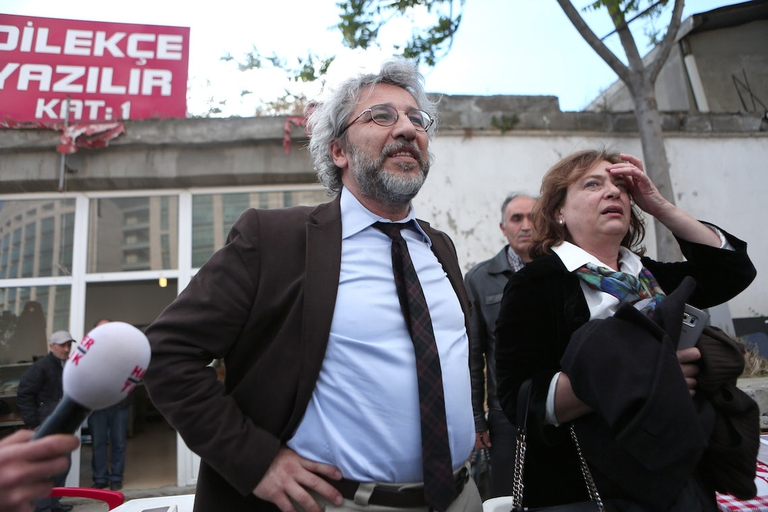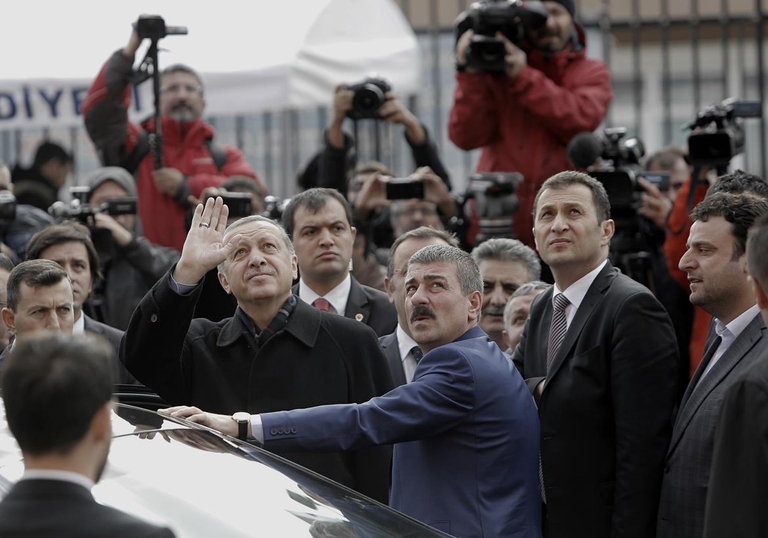
Trump’s decision to recognise Jerusalem, considered holy by three religions, as Israel’s capital has met with a widespread backlash from the rest of the world. Why it’s so controversial.
Two journalists reported that the Turkish secret service shipped illegal arms to Syria. They have been sentenced to five years in jail, after a gunman tried to kill one of them outside the courthouse.
Can Dundar and Erdem Gul, journalists of the opposition Cumhuriyet newspaper, have been sentenced to five years and ten months and five years in jail respectively by Istanbul courthouse on 6 May. They have been charged with revealing – in two articles – the existence of arms trafficking managed by Ankara’s state intelligence agency. The smuggling included bombs and ammunitions collected and shipped to Syria, to help rebels.
The two journalists were arrested on 26 November 2015, a fact that was heavily criticised by the international community. Then, on 26 February, the Constitutional Court of Turkey established that their imprisonment was illegitimate: the judges were obliged to release them from jail (but they had had their passports seized). Turkish President Recep Tayyip Erdogan said he “doesn’t respect” this decision.
A few days ago, the sentence was pronounced after a new private hearing. But there’s more: in the afternoon the court ordered a break of a few minutes. So, Dundar and Gul went out of the courthouse and joined a group of journalists waiting to talk to the indicted who were the only source of information in a private trial.
It was in that moment that a gunman appeared from nowhere and shouted “traitor” at Dundar pointing a gun against him. He fired three bullets that fortunately only grazed the reporter. Another bullet hit Yagiz Senkal, a journalist at NTV, in a leg.
“I don’t know who the attacker is but I know who encouraged him and made me a target”, Dundar said. The attacker was obstructed by Dundar’s lawyer and wife and was successively identified: according to the Dogan news agency the attacker is 40-year-old Murat Sahin from the city of Sivas, in north eastern Cappadocia, a conservative area.
Few minutes after the attack, the sentence was pronounced. Erdogan and the National Intelligence Organisation brought a civil action in the trial and their lawyers insisted that the reporters were charged with revealing state secrets for espionage purposes and aiding terrorist attacks. But the court only issued the indictment of “revealing state secrets”.
The President of Turkey had already demonstrated that he doesn’t like opposition journalists in the country. In October, a few days before the legislative elections, Turkish authorities attacked and censored two TV channels that had criticised the President.
Nevertheless, the European Union still considers Erdogan as a reliable person, so much so that it asked the country to “select” Syrian migrants entering Europe. This choice outraged humanitarian organisations all over the world.
Siamo anche su WhatsApp. Segui il canale ufficiale LifeGate per restare aggiornata, aggiornato sulle ultime notizie e sulle nostre attività.
![]()
Quest'opera è distribuita con Licenza Creative Commons Attribuzione - Non commerciale - Non opere derivate 4.0 Internazionale.
Trump’s decision to recognise Jerusalem, considered holy by three religions, as Israel’s capital has met with a widespread backlash from the rest of the world. Why it’s so controversial.
Amnesty International has documented the state of human rights in 159 countries in 2016. And claims: “The rhetoric of ‘us against them’ is breeding division and fear”.
Uomini bruciati vivi, esecuzioni sommarie. Le ultime ore di combattimenti ad Aleppo segnate da terribili atrocità. Accordo per evacuare i civili.
State of emergency could threaten human rights In response to the failure of the military coup that took place on the 15th of July, the Turkish government has begun a series of crackdown measures. These include declaring a three-month long state of emergency and suspending the European Convention on Human Rights (ECHR). Thousands of Turkish citizens, from academics to soldiers and
President Recep Tayyip Erdogan has declared a state of emergency in Turkey that has been approved by the parliament in a 346 to 115 vote. In effect since the 21st of July, it will last 3 months. Turkey suspends the European Convention on Human Rights The most controversial and worrisome consequence is the suspension of the
Th UK’s Prime Minister Theresa May chose Boris Johnson as the country’s foreign secretary. Why was the world so surprised by this decision?
Located in the South-Caucasus, the mountainous republic of Nagorno Karabakh is a presidential democracy inhabited by ethnic Armenians. In 1923, Stalin handed the territory over to Azerbaijan following a divide and rule policy put into place to weaken the national aspirations of minority groups. After the fall of the Soviet Union in 1991, a war broke
In the latest attack on freedom of expression in Turkey, three academics who signed a peace petition in January 2016 have been detained by a court of Istanbul, being charged with making terrorist propaganda. The 3 were arrested on 15 March 2016, pending the completion of a criminal investigation. Security forces requested imprisonment up to
They’re guilty of signing a declaration to denounce and ask to stop the violence perpetrated by the Turkish army against the leaders of the Kurdistan Workers’ Party – PKK. It’s a declaration urging a peaceful solution to the almost centuries-old conflict in the south-east between Turkey and the PKK, which is considered to be a terrorist









